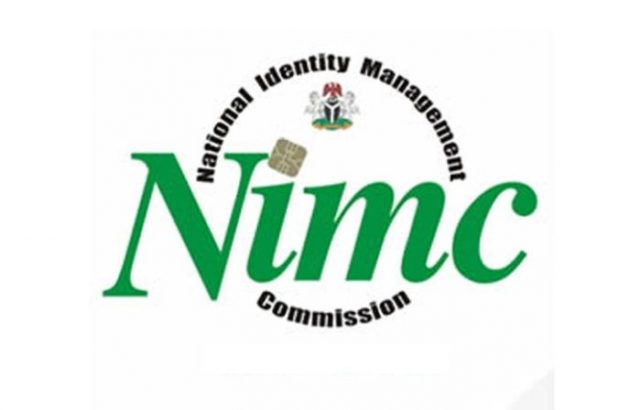The National Identity Management Commission (NIMC) has denied claims of system downtime despite growing complaints from mobile subscribers facing persistent delays in completing SIM swap, registration, and related services. The development has sparked confusion and frustration among users and telecom operators, with many pointing fingers at NIMC’s identity verification platform as the cause of service disruption.
Over the past few weeks, telecom subscribers across Nigeria have reported significant difficulties in retrieving lost SIM cards, updating their lines, or registering new numbers due to what they were told was the unavailability of the National Identification Number (NIN) verification system. These complaints emerged at service centers of major telecommunications providers, where customers were informed that the NIMC portal was inaccessible, thereby halting the SIM swap and activation process.

However, in a statement released to clarify the situation, the NIMC rejected the notion that its system had experienced any downtime. The commission asserted that its backend operations remained fully functional and that service interruptions being experienced were not due to any internal failure or outage. According to NIMC, the identity verification infrastructure was accessible to authorized agents and telecom partners who had fulfilled all required integration protocols.
The commission further emphasized that any access issues encountered by telecom operators or their agents were likely a result of incomplete system updates or misconfigurations on their end. It urged mobile network operators to ensure that they have aligned with the new verification processes and API requirements introduced as part of ongoing digital upgrades. NIMC reiterated its commitment to providing uninterrupted services, particularly given the crucial role identity verification plays in national security and digital economy development.
Despite the commission’s assurance, the experience of many customers across the country tells a different story. At several telecom service centers in Lagos, Abuja, and Port Harcourt, subscribers were seen waiting for hours, only to be informed that the NIN system was down. Some individuals who had lost their SIM cards said they had been unable to retrieve their lines for over a week, affecting their ability to conduct banking transactions, access digital platforms, or communicate with family and clients.
One Lagos resident, who identified herself as Mrs. Yinka Alabi, shared that she had visited her service provider’s outlet multiple times over the course of five days, only to be repeatedly told the system was unavailable. According to her, the line was linked to her business and bank account, and the delay had left her stranded financially. Another subscriber in Abuja, Musa Danladi, described a similar experience, stating that even after obtaining his NIN slip, he was unable to complete his SIM registration because the portal failed to authenticate his credentials.
In response to the widespread service complaints, some telecom operators acknowledged experiencing technical issues while attempting to interface with the NIMC verification system. One of the major service providers issued an apology to its customers, attributing the disruptions to ongoing system upgrades and unanticipated glitches in connecting to the updated identity database.
Industry experts have pointed to the broader challenge of system integration between NIMC and telecommunications providers. The recent migration to an enhanced identity verification platform was intended to increase speed, improve accuracy, and provide better scalability for the growing demand for digital identity services. However, operators reportedly faced delays in aligning their infrastructure with the new system, resulting in intermittent access failures.
The Association of Licensed Telecommunications Operators of Nigeria (ALTON) confirmed that there had been a transition in the NIN verification process which affected the ability of telecom companies to verify subscriber identities in real time. ALTON maintained that the disruption was temporary and that efforts were being made in collaboration with NIMC to restore full connectivity and streamline the verification process.
As Nigerians increasingly depend on their mobile lines for essential services including banking, education, e-commerce, and government interactions, the inability to resolve SIM-related issues in a timely manner raises significant concerns. For many, a delay of even a few days in recovering a lost SIM or registering a new line can result in missed business opportunities, communication breakdowns, or access issues to critical digital platforms.
The Nigerian Communications Commission (NCC) has yet to make a formal statement on the matter, but sources close to the regulatory body suggest that it is closely monitoring the situation. Stakeholders have called on all parties—NIMC, telecom providers, and regulatory agencies—to work together in resolving the bottlenecks and ensuring that subscribers are not left stranded.
In the meantime, NIMC continues to maintain that its services remain active and that any ongoing issues are isolated cases linked to system migration and adaptation. The commission urged patience from subscribers and assured the public that efforts were underway to ensure seamless verification services in the coming weeks. For millions of mobile users, however, the real test will be how quickly their access to essential services is restored and whether similar disruptions will be avoided in the future.
Support InfoStride News' Credible Journalism: Only credible journalism can guarantee a fair, accountable and transparent society, including democracy and government. It involves a lot of efforts and money. We need your support. Click here to Donate

2 Comments
Please I want to remove the middle name on my NIN it brings confused Thank you
Follow the instructions published here – https://www.theinfostride.com/how-to-remove-a-middle-name-from-your-nin-in-nigeria-step-by-step-guide/